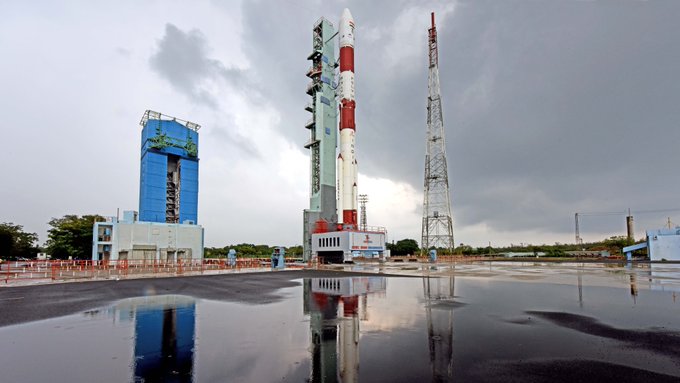
What’s latest in Devas-Antrix case and what does it mean for India?
India's image as an investment hotbed may take a beating as US court refuses to stay arbitration award against Antrix in the Devas case

India recently amended a law that had allowed retrospective taxation, as its global image as an investment destination took a severe beating with the high-profile Cairn and Vodafone tax cases. Yet, a lot of damage may already have been done, as evidenced in the latest development in the Antrix-Devas case.
Akin to Cairn and Vodafone, Devas Multimedia had won an international arbitration case against Antrix Corporation, the commercial arm of Indian Space Research Organisation (ISRO), a few years ago. But that did not end the dispute.
Also read: ‘What’s there to hide’: Why snooping is not a big deal in India
Earlier this week, the US federal court for the Western District of Washington refused to stay proceedings in the Devas vs Antrix case, citing what it called ‘delay tactics’ by the state-run ISRO.
What happened earlier
Under a 2005 deal, ISRO was supposed to lease two communication satellites for 12 years for ₹167 crore to Devas Multimedia. Devas, then a start-up firm, planned to provide multimedia services to mobile platforms in India using space band (S-band) spectrum transponders on satellites built for ₹766 crore by ISRO, recalled an Indian Express report.
However, in February 2011, amid the 2G scam, the UPA government annulled the deal, saying the nation needed the S-band spectrum for security purposes. When the BJP came to power in 2014, the new government asked the Central Bureau of Investigation (CBI) and the Enforcement Directorate (ED) to probe the deal.
Meanwhile, miffed by the cancellation of the order, foreign investors in Devas — German telecom giant Deutsche Telekom, three Mauritius-based investors — and Devas itself went for international arbitration against India, and sought damages for the annulled deal.
An arbitration award for $1.2 billion went in favour of Devas in 2015, for damages in lieu of the Antrix deal cancellation. India declined to honour the ruling.
In October 2020, the Washington court confirmed the compensation for Devas. Earlier this year, the three foreign investors in Devas Multimedia, as well as Devas Multimedia America Inc (a subsidiary), approached the Washington court again, expressing fears of Devas entering into a deal with Antrix.
What happened now
As Devas faced liquidation, the National Company Law Tribunal (NCLT) in Bengaluru had appointed a liquidator for the stressed firm. The liquidator had opposed the move taken by the three foreign investors in Devas to seek confirmation of the $1.3 billion arbitration award, said the report.
Last month, Antrix appealed to the Washington court to block Devas’ attempts to track down assets and enforce the $1.2-billion arbitration award. The appeal followed Devas filing a motion in the same court, according to an Economic Times report. Devas had stated that Antrix was continuing to “dodge and duck” the arbitral award.
In the latest development in the case, last week, the court refused to stay the arbitration award against the ISRO arm. According to a report in the Indian Express, it cited delays in the appointment of an advocate for Devas by the liquidator for the company, for its decision to deny a stay order. It pointed to Antrix’s “hindrance and delay” and refused to order a stay on the proceedings.
Bankruptcy court procedures
The US court observed in its August 9 order: “The liquidator for the petitioner (Devas) fired the petitioner’s former counsel in early February 2021…although the court directed the liquidator to hire new counsel in compliance with the local civil rules on March 23, 2021, the liquidator waited nearly four months to do so, on July 14, 2021.”

“As the court has repeatedly emphasised, this matter has been subjected to hindrance and delay, largely on the part of respondent Antrix Corp Ltd. The parties’ dispute arises from conduct in February 2011, the award was issued in favour of the petitioner in September 2015, and the petitioner’s related confirmation action was filed in this court nearly three years ago in September 2018,” the report quoted district judge Thomas S Zilly as saying.
“The court concludes that the petitioner’s motion for a stay lacks merit under these circumstances and is intended to further delay these proceedings, as well as petitioners or intervenors’ right to recover on the award,” the court said.
In a parallel development, the NCLT ordered the liquidation of Devas on May 25, following a plea by Antrix, said the IE report. Devas as well as its investors moved the National Company Law Appellate Tribunal (NCLAT) against the NCLT order, and the matter was reserved for orders on July 28, it added.
Even as India seeks to draw foreign investment in a wide range of industries, its ability to provide a legally sound business environment is being questioned. For global investors trying to gauge the country’s earnestness in providing a fair playing field, the Davas-Antrix case may prove a benchmark.


